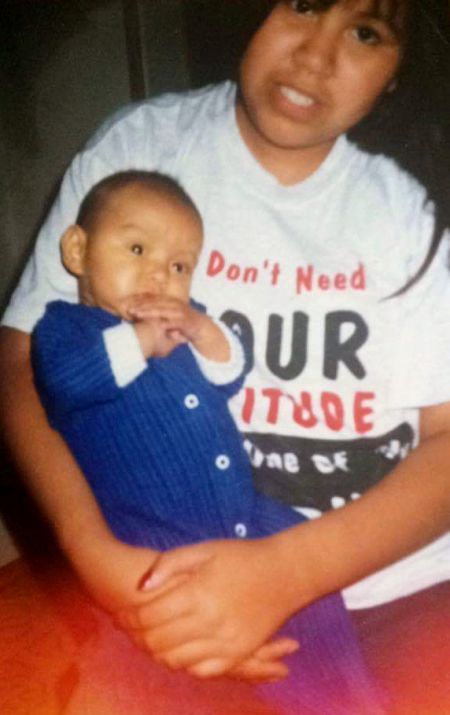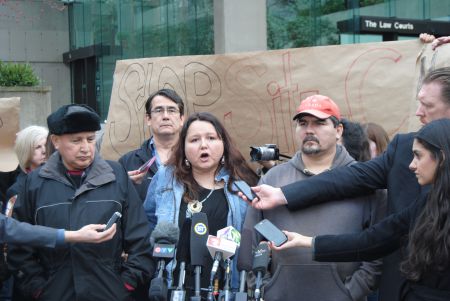DominionSections
Browse Articles
- IndependentMedia.ca
- MostlyWater.org
- Seven Oaks
- BASICS Newsletter
- Siafu
- Briarpatch Magazine
- The Leveller
- Groundwire
- Redwire Magazine
- Canadian Dimension
- CKDU News Collective
- Common Ground
- Shunpiking Magazine
- The Real News
- Our Times
- À babord !
- Blackfly Magazine
- Guerilla News Network
- The Other Side
- The Sunday Independent
- Vive le Canada
- Elements
- ACTivist Magazine
- The Tyee
- TML Daily
- New Socialist
- Relay (Socialist Project)
- Socialist Worker
- Socialist Action
- Rabble.ca
- Straight Goods
- Alternatives Journal
- This Magazine
- Dialogue Magazine
- Orato
- Rebel Youth
- NB Media Co-op
Radio
Experiencing Colonization and Decolonization Efforts
By Tami Starlight, Two Spirit, low income, able bodied (with invisible disabilities), Cree elder from the Peguis Nation with some Norwegian ancestry due to mother marrying outside the nation
Letting the World Know
"Iâd rather have the provincial government and these corporations as my enemies than have my grandchildren hate me because I didnât protect their water."
How should movements engage with the NDP?
Halifax organizers share their perspectives
Door-to-door canvassing for door-to-door delivery
Community activists in London work to save and extend Canada Post services
Building the Anti-Capitalist Left
From single-issue groups to an infrastructure of solidarity
Austerity and Homelessness Kill in a Canadian Winter
An interview with Toronto anti-poverty activist John Clarke
The Petronas Project and the LNG Pipe Dream
Opinion: Haiti’s Electoral Shambles, CEP Officials Can Either Fix the Mess or They Go to Jail

By WADNER PIERRE
For too long, people paid by Haitian people to do their job have not been held accountable. Now, it’s the time for the Haiti’s electoral officials – the Conseil Electoral Provisoire (CEP) – to either fix the electoral mess or go to jail.
It is despicable that a CEP official threatened to shut down the whole electoral process instead of collaborating with a government-backed commission to investigate massive electoral frauds that they fail to avoid. Marie Carmelle Paul Austin, a member of the electoral council, told a radio in Haiti’s capital that the electoral council members are ready to depart in bloc “If this commission’s purpose is to redo or verify the work that the CEP has already done, the council members will resign.” What Madame Austin did not say is that when you betray your people, violate your country’s laws and contribute to social and political destabilization you should be in jail.
For too long, Haitian people have been struggling for participative democracy and social justice. They’ve been ignored by Haitian officials who primarily seek to satisfy the interest of their international backers like the United States, Canada and France by either plotting electoral coups. Although the Martelly administration finally established a commission to address the latest electoral disaster, it is uncertain that anything will come of it.
Martelly himself was a beneficiary of an electoral fiasco. How can one believe he will accept any recommendation asking the removal of his handpicked candidate? This move reminds me of an article by Haiti’s renowned author Edwidge Danticat: Sweet Micky and the Sad Déjà Vu of Haiti’s Presidential Elections.
Haiti Elections: Catholic Church still Undecided whether to join the Govt.-formed Electoral Commission or Not

BY WADNER PIERRE
Nearly two months since Haiti’s Conseil Electoral Provisoire (Electoral Provisional Council), know as the CEP, announced the final results for the first round residential, second round legislative and local elections that plagued with massive frauds. The controversial results for the presidential elections placed Haiti’s ruling Party candidate, Jovel Moise at the first place with over 34 percent of the popular and the former 2010 presidential candidate Jude Celestin in second place. Since then protest against those tainted results have been widened through the country.
After candidates and their backers, religious leaders (Catholics and Protestants) and national and international human rights and advocacy groups urged the CEP to form an independent commission to investigate the electoral frauds that were no longer mere allegations, the CEP rejected such proposition and proceeded to schedule the presidential runoff on Dec. 27 with the two candidates obtained the majority of the vote. Celestin, a member of group of eight presidential candidates, known as G8, who have been protesting the CEP’s results, declared he would not participate at the runoff unless the CEP satisfied the demand of G8.
The United States, a staunch supporter of the current administration, and spent over $30 millions for the organization of these log-overdue elections, sent Kenneth Merten, the U.S former ambassador to Haiti and State Department’s Special Envoy to Haiti to convince candidates, most importantly Celestin, to accept the CEP’s results. Merten, a close friend of Martelly, and one the controversial figures that engineered Martelly’s election in the 2010 controversial elections, failed to his mission.
Haiti: Govt. Formed an Electoral Commission to End Electoral Deadlock; Will the CEP Reschedule the Runoff?

BY WADNER PIERRE
Since the CEP published its tainted and most controversial results for the presidential, second round legislative and local elections early last November, thousands have been demonstrated in the streets of Haiti’s largest cities to reclaim a recount of their votes. Religious leaders and international human rights and advocacy groups have also urged the CEP to investigate irregularities and massive electoral frauds that are no longer mere allegations.
As protests widening, diplomatic talks failed and G8 candidates remaining steadfast in their position, to remedy the situation, Haiti’s PM Evans Paul in an one-page letter sent to the President Michel J. Martelly, proposed a formation of an electoral commission to ensure the credibility of the already festered electoral process.
The commission according to the Prime Minister’s letter will have three days to produce recommendations to the government and the Conseil Electoral Provisoire (Electoral Provisional Council), known as the CEP. The head of the government stated,“ …it is necessary to organize credible, transparent, participative and inclusive elections,” as well as “to do whatever it takes” to create a climate of trust for the actors involving in the process.
The CEP shows no sign that it will abide by the recommendations of the government-formed commission. One of its members Marie Carmelle Paul Austin told a radio in the Haiti’s capital that the electoral council members are ready to depart in bloc should the commission interfere in their work. “If this commission’s purpose is to redo or verify the work that the CEP has already done, the council members will resign,” implied council Austin.
Haiti: CEP Failed to its Mission, But an Electoral Miscarriage Can Be Avoided

By Wadner Pierre
This article was originally published by UnlessWeCare.org
Screen Shot 2015-11-06 at 6.34.24 AM It has been over a month since Haiti’s Conseil Electoral Provisoire (Electoral Provisory Counsel), known as CEP, published its foreknown controversial fraudulent results for the first round presidential and second round legislative elections. The CEP’s preliminary results for the presidential elections placed President Michel Martelly’s hand-picked candidate Jovenel Moise of Parti Haïtien Tèt Kale, or P.H.T.K in the first place with 32.8 percent of the popular votes. Jaccéus Joseph, a member of the electoral council, qualified the results as unacceptable.
Miami Herald’s Jacqueline Charles reported, Joseph refused to sign “the presidential and legislative preliminary results” because of irregularities and frauds that plagued them. Joseph thought his refusal to endorse the results would prompt the Tabulation Center to verify “the allegations of electoral fraud, including checking the voter registration lists against the ballots cast in the Oct. 25” elections to avert an unnecessary electoral crisis.
Joseph said, “We asked the director of the Tabulation Center did he have enough time to thoroughly verify if there was fraud.” According to Joseph, the director told them, “[H]e didn’t have enough time for that.”
Despite Joseph’s insistence on verifying and correcting the irregularities and frauds threatening the credibility of the results, CEP’s President Pierre-Louis Opont decided to publish the tainted results. The electoral crisis that was avoidable is now becoming an inevitable crisis. This man-made electoral dispute could further derail the political and social stability of the country.
» continue reading "Haiti: CEP Failed to its Mission, But an Electoral Miscarriage Can Be Avoided "
The Extraordinary Possible
Beyond austerity, glimpses of climate justice and a democratic economy
Archived Site
The Dominion is a monthly paper published by an incipient network of independent journalists in Canada. It aims to provide accurate, critical coverage that is accountable to its readers and the subjects it tackles. Taking its name from Canada's official status as both a colony and a colonial force, the Dominion examines politics, culture and daily life with a view to understanding the exercise of power.
 Download Issue #96
Download Issue #96 Download Issue #95
Download Issue #95














